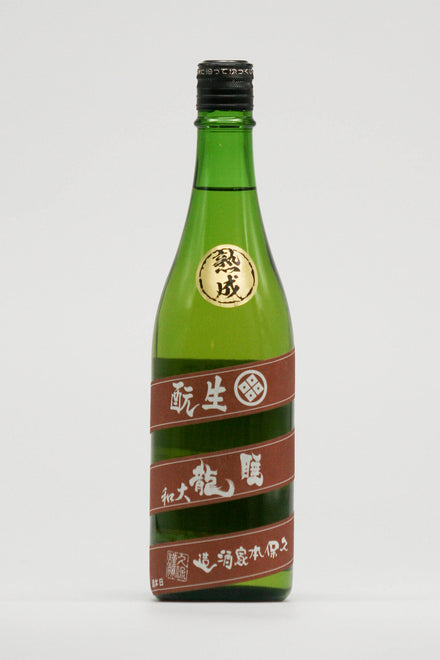


This is a top-class food-pairing sake that maintains the softness typical of Fushimi's famous sake, while maintaining a high level of balance between complex aromas and flavors through long-term maturation in traditional pots called kame.
TsukinoKatsura 1992/2012
| Vintage | - |
| Years aged | over 10 years |
- 10 years or more
- 10,000 – 49,999yen
- All Products
- Light Yellow/Green
- Non-vintage
- Throughout the meal
- 熟と燗オリジナル
- Brewer:
- Alcohol:17%
- Volume:720ml
Couldn't load pickup availability
[ Drinking alcohol under the age of 20 is prohibited by law. ]
There is a description of aged sake in Honchochokan, a document dating back to the Edo period(1603-1867). Based on this, the brewery has created a assemblage of two types of sake that have been matured for a long period of time in traditional pots called kame (which can be made from of earthenware, glass or stone), which are fired at high temperatures, to create an original sake with complexity.
The sake is polished using soft water from Kyoto, and the far-infrared effect of the pots creates a mellower and smoother drink.
Pour into a large glass, let the aroma accumulate in the bowl, and enjoy slowly. Alternatively, sip it at room temperature or lukewarm in a saucer-shape cup called a hirahai to incorporate air and enjoy a richer aroma. Both are recommended.
* Since pots are used for storage and the conditions vary depending on the pot, there are individual differences even within the same vintage.
- about
-
Type Assemblage Rice polishing ratio - Yeast type - Ingredients/raw materials Rice (domestic), rice malt (domestic) Rice type - Origin of rice - Toji(Brew Master) - Assemblage Yes (1992 and 2012)
- Recommended occasions/temperature
-
- How to store
-
- Delivery dates and charges
-



Tasting comments
-
Nobuhiro Ueno
(Juku to Kan Bar Master / Permanent Director of the Toki Sake Association)From the burnt but rather elegant fragrance, it is clear this sake is worthy of its name: Taoyaka (lit: dainty).
The harmony is wonderful, and the spread of flavor is a gradual one. All five tastes are beautifully woven together, and there is so much taste to explore.
The bit of astringency at the end suggets it would be good warm. I want to try it warm in a larger vessel like a sakazuki.
A gentle sake that elicits an audible "delicious" from every sip.
Brewer
- Choosing a selection results in a full page refresh.
- Opens in a new window.



